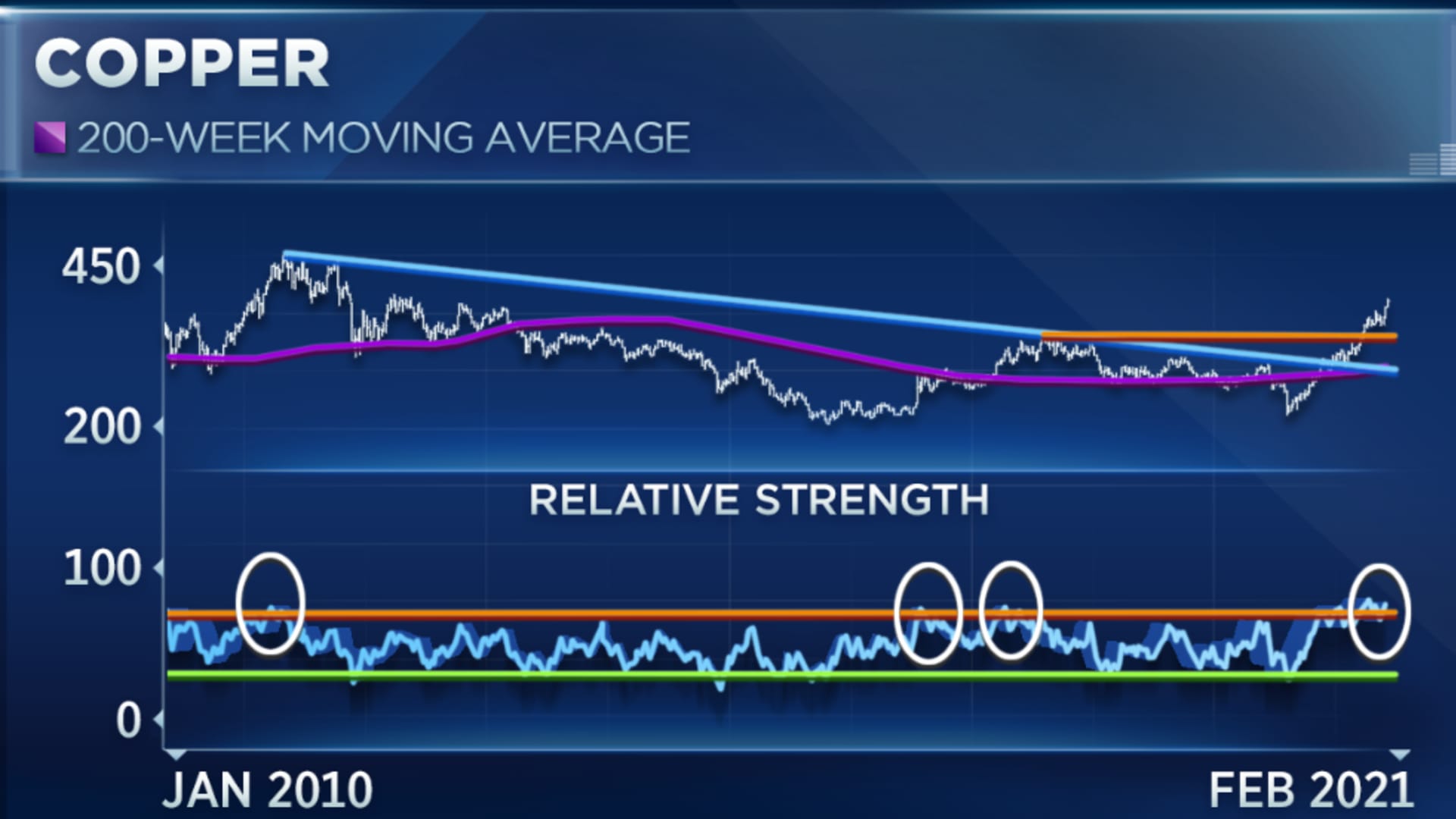
"Dr. Copper" may have a good prognosis for the global economic recovery.
The commodity earlier this week rose to its highest level since April 2012. Its price is often seen as a barometer for the economy, given copper's use in supply chains across manufacturing and production.
But after a 22% rally in three months, it may need a breather, strategist Matt Maley told CNBC's "Trading Nation" on Thursday.
Get Tri-state area news and weather forecasts to your inbox. Sign up for NBC New York newsletters.
"On a short-term basis, you want to let them come to you," Miller Tabak's chief market strategist said. "It's had this huge rally, and it's getting quite overbought on a near-term basis."
Maley pointed to its relative strength index, a measurement of how overbought or oversold an asset has become. On a weekly basis, copper's RSI has moved above 70, which typically indicates overbought conditions.
"I think, therefore, it's getting ripe for a pullback, which would be normal and healthy," said Maley. "Another concern is the dollar, which is a very crowded trade on the short side. If that rallies at all here in the near term, that could be another excuse for commodities to come in."
Money Report
Maley added that this was not a bearish call. He turned bullish on commodities over the summer and believes in the broader turnaround in the space.
"Love them long term and I think any pullback will provide a great buying opportunity. Near term, you don't want to be too aggressive here," he said.

While copper's surge may be an indicator of higher demand, one market analyst says it may have been squeezed on the supply side, too.
"You have to remember that commodities like copper are built by both the supply and the demand story. The supply story in copper actually is part of the problem here," Gina Sanchez, CEO of Chantico Global and chief market strategist at Lido Advisors, said during the same interview.
Sanchez said reduced production in Peru, which services demand in China, may have driven copper prices higher. Analysts expect a big bounce in China's post-Covid economic activity this year — GDP is forecast to rise 8.3% in 2021, according to FactSet.
"That big surge in demand met with that big shortage of supply, and I think that's one of the explanations right now. There's no question that stimulus and vaccinations and the eventual reopening of the economy is being priced in here, but some of this is a shortage of supply," said Sanchez.






